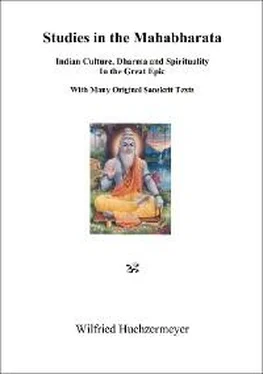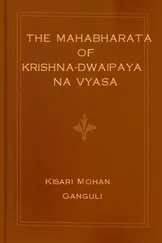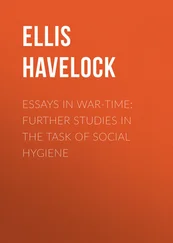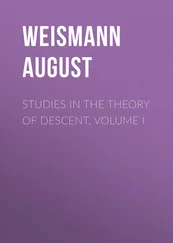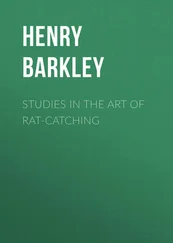In the event of the dice game we experience in a major scene a density of action and subtlety of perception which seem to reveal the master hand of Vyāsa himself at work. The crisis of the Pāṇḍavas and their wife, the immensity of inner torture that they undergo, are described in a terse, almost cool language which nevertheless makes us breathless participants of a tremendous drama. We may say that the inner torment of Yudhiṣṭhira, Bhīma, Arjuna and Draupadī in this scene is even greater and more severe and devastating than Arjuna’s famous despair at the beginning of the war.
Apart from analysing these situations where souls struggle for their survival, fight for their inmost Truth, we will also try to provide new answers to a number of questions:
1) Why did Yudhiṣṭhira accept the challenge for the dice game? Was he really moved by his passion for the game?
2) Why did he accept to play against Śakuni, a well-known master-wizard joining the game on Duryodhana’s behalf?
3) Why was Yudhiṣṭhira so much in a haste to lose everything once the game started and his losing streak became obvious?
4) Why did Yudhiṣṭhira go so far as to stake even Draupadī, although it was clear that he would lose her as he lost everything else?
5) What were the exact implications of Draupadī’s question to the assembly whether Yudhiṣṭhira had lost himself before he lost her?
6) Why did none of the elders present in the hall (Bhīṣma, Droṇa, Kṛpa etc.) intervene on behalf of Draupadī when Duḥśāsana started molesting her?
These are some of the questions which we will deal with, closely following the text of the Critical Edition. All the while we will have the occasion to enter a real life scene enacted in ancient India – or at least realistically imagined by the poet – which provides us with a first-hand psychological experience of various interesting characters.
Preliminary Events
Once prince Duryodhana52 stepped in the middle of the hall on a crystal slap, and wrongly assuming it was water, the bewildered prince raised his robe. Upset and downcast, he then roamed about the hall. Thereafter, beholding a pond with crystalline water, beautiful with crystalline lotuses, he thought it was land and fell into the water, fully dressed. When they saw him fallen into the water, the servants laughed a lot and gave him fresh clothes at the king’s behest. After this had happened to him, the mighty Bhīmasena, Arjuna and the twins all of them burst into laughter. Being an irritable man, he could not bear their mockery and did not look at them to save his face.53
Duryodhana suffered three great disappointments in his life. The first was when the five Pāṇḍavas left the forest after their father’s death and moved into the palaces of the Kuru house with their mother Kuntī. Like an admired and undisputed champion athlete who is suddenly relegated to third or fourth rank by the unexpected arrival of new sportsmen, so Duryodhana was bereft at that time of his sure status of not only the successor of the Kuru dynasty but also the leader among the young princes at the Court. He was one of those persons whose character does not allow them to prosper and be happy except under conditions where they are the one and only leader. To be eclipsed by another ‘star’, to be driven by others rather than driving oneself, to have rivals who divert the attention and admiration away from oneself – all this does not suit a Duryodhana who would prefer to die rather than accepting such conditions. Thus we find him fighting from the beginning, trying to kill Bhīma at first for having humiliated the Kaurava princes with various feats of strength, and then later attempting to burn the five brothers in the lacquer palace at Vāraṇāvata.
The second disappointment was when Arjuna won Draupadī at her svayaṁvara by his superior skill in archery. Duryodhana failed to string the bow54 and saw his close friend Karṇa defeated in the short battle which ensued with the unknown Brāhmins, actually the Pāṇḍavas in disguise. His worst enemies, believed to be dead beyond doubt, had staged a powerful comeback, won a most beautiful bride for themselves and secured a strong new ally, king Drupada.
The third great disappointment was Yudhiṣṭhira’s coronation as saṁrāṭ. For sure, this was a great event for the Kuru family whose members were given various functions at this occasion. “Duryodhana received all the presents of honour,” says the text.55 Even though Yudhiṣṭhira had generously assured the Kauravas, “all this wealth here is yours and so am I,” it can hardly have been a pleasing experience for Duryodhana to collect treasures on Yudhiṣṭhira’s behalf.56
And then came, on top of that, his embarrassing experience (recorded in the quotation above) while inspecting the palace built by Maya with many contraptions. Like a fool he stumbles into all the traps carefully laid out by the master architect, and everywhere sees laughing grimaces enjoying his ill luck. Duryodhana does not react with resignation, but he thinks of revenge. At this moment a seed was sown for a terrible and merciless battle where the end would justify the means whatever their nature. Henceforth, there could only be the defeat (and preferably death) of the Pāṇḍavas or his own, no compromise was conceivable.
While Duryodhana is returning home in the company of Śakuni, he is invaded by thoughts of burning hatred. He conveys his inner convulsions to his uncle at his enquiry:
I am outraged, burning day and night… When I saw all that blazing wealth at the Pāṇḍava’s, I was seized by anger and I am burning, although usually that’s not my state of mind. I will enter the fire or take poison or drown myself, because I won’t be able to live on.57
We need not assume that Duryodhana was really playing with the thought of ending his life. This is just cunning talk meant to impress Śakuni with the need of doing something to support him. In fact, he expects Śakuni to approach Dhṛtarāṣṭra, informing him about his son’s agony.
Śakuni’s Role
Śakuni, brother of Dhṛtarāṣṭra’s wife Gāndhārī, has generally a rather negative image, but here, in the established text of the Critical Edition, we get a slightly different picture and find him to be a rather cool-headed advisor trying to calm down the inflamed Duryodhana. He begins his answer to Duryodhana with the following counsel:
Duryodhana, you must not harbour any anger against Yudhiṣṭhira, for the Pāṇḍavas have always enjoyed good luck.58
In this whole passage Śakuni does not say anything which could further fan the fire of Duryodhana’s hatred. He is rather trying to bring him to a rational level, giving him a realistic evaluation of the situation. Śakuni points out that Duryodhana is not all alone, as he believes in this moment of depression, but he has powerful allies such as Droṇa, Kṛpa and Karṇa. But quite apart from that, Śakuni does not encourage him at all to think of war, because the five Pāṇḍavas and Kṛṣṇa “cannot be defeated in battle by force, not even by the hosts of the gods”.59
Here again Śakuni’s way of talking to Duryodhana is quite surprising. To hear in such frank speech from his close relative that his enemies are invincible must have been another severe shock for the Kaurava prince. We know from previous incidences that he would get furious with those who doubted his own fighting capacities. But Śakuni had a trump card up his sleeve which he quickly brought out to console his downcast protégé: the idea of staging a dice game with Yudhiṣṭhira and robbing him of all his wealth by shrewd, though non-violent means.
The Kaunteya60 loves gambling, but has no skill in it. If the rājendra is challenged, he will not be able to desist from it.61
Читать дальше
